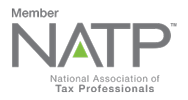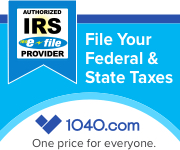Total Dues Union Prof Assn Exp
TRANSFER TO SHEET 2 LINE 20–1 ▲
Total Equipment Repairs Expense
TRANSFER TO SHEET 2– LINE 20–8 ▲
Total Uniform Protect Clothing Exp
TRANSFER TO SHEET 2– LINE 20–10 ▲
Total
TRANSFER TO BACK OF SHEET 2– SECTION II – LINE 13 ▲
Total Telephone Expenses
TRANSFER TO SHEET 2– LINE 20–9 ▲
Total Professional Ed Expenses
TRANSFER TO SHEET 2– LINE 20–2 ▲
Total Out of Town Expenses
TRANSFER TO BACK OF SHEET 2 SECTION I– LINE 3 ▲
Meals
TRANSFER TO BACK OF SHEET 2 LINE 5
Total Misc Expenses
TRANSFER TO SHEET 2– LINE 20–11 ▲
Key Expenses for Firefighter
F EQUIPMENT & REPAIRS
Generally, to be deductible items must be ordinary and necessary to your job as a firefighter and not reimbursable by your employer. Record separately from other supplies, the costs of business assets which are expected to last longer than one year and cost more then $300. Normally, the costs of such assets are recovered differently on your tax return than are other recurring, everyday business expenses like flash-lights, batteries and other supplies.
G AUTO TRAVEL
Your auto expense is based on the number of qualified business miles you drive. Expenses for travel between business locations or daily transportation expenses in going between your residence and temporary work locations are deductible; include them as business miles. Your trips between home and work each day or between home and one or more regular places of work are COMMUTING and are NOT deductible.
Document business miles in a record book as follows:
(1)Give the date and business purpose of each trip; (2)Note the place to which you traveled, (3) Record the number of business miles; (4) Record your car's odometer reading at both the beginning and end of the tax year. Keep receipts for all car operating expenses – gas, oil, repairs, insurance, etc., and of any reimbursement you received for your expenses.
H TRAVEL OUT-OF-TOWN
Expenses of traveling away from "home" overnight on jobrelated and continuing-education trips are deductible. Your "home" is generally considered to be the entire city or general area where your principal place of employment is located. Outof-town expenses include transportation, meals, lodging, tips, and miscellaneous items like laundry, valet, etc. Document away-from-home expenses by noting the date, destination, and business purpose of your trip. Record business miles if you drove to the out-of-town location. In addition, keep a detailed record of your expenses – lodging, public transportation, meals, etc. Always list meals and lodging separately, in your records. Receipts must be retained for each lodging expense. However, if any other business expense is less than $75, a receipt is not necessary if you record all of the information in a diary. You must keep track of the full amount of meal and entertainment expenses even though only a por-tion of the amount may be deductible.
A FIREFIGHTERS PROFESSIONAL FEES & DUES
Dues paid to professional societies related to your occupation as a firefighter are deductible. However, the cost of initial admission fees paid for membership in certain organizations or social clubs are considered capital expenses.
Deductions are allowed for payments made to a union as a condition of initial or continued membership. Such payments include regular dues, but not those which go toward defraying expenses of a personal nature. However, the part of union dues which goes into a strike fund is deductible.
B UNIFORMS & UPKEEP EXPENSES
Generally, the costs of your firefighter uniforms are fully deductible. IRS rules specify that work clothing costs and the cost of its maintenance are deductible if: (1) the uniforms are required by your employer, (if you're an employee); and (2) the clothes are not adaptable to ordinary street wear. Normally, the employer's emblem attached to the clothing indicates it is not for street wear. The cost of protective clothing (e.g., safety shoes or goggles) is also deductible.
C TELEPHONE EXPENSES
The basic local telephone service costs of the first telephone line provided in your residence are not deductible. However, toll calls from that line are deductible if the calls are business related. The costs (basic fee and toll calls) of a second line in your home are also deductible, if used exclusively for business.
D CONTINUING EDUCATION
Educational expenses are deductible under either of two conditions: (1) Your employer requires the education in order for you to keep your job or rate of pay; or (2) The education maintains or improves skills as a firefighter. Costs of courses that are taken to meet the minimum requirements of a job, or that qualify a person for a new trade or business, are NOT deductible.
E MISCELLANEOUS
House dues and meal expenses may be deductible. Firefighters are often required to eat their meals at the station house. One court case (Sibla) said that the costs of such meals are nondecuctible unless the firefighters: (1) are required to make payments to a common mess fund as a condition of employment, and (2) must pay whether or not they are at the station house to eat the meals. Contact this office for further details on this deduction. Expenses of looking for new employment in your present line of work are deductible – you do not have to actually obtain a new job in order to deduct the expenses. Out-of-town job seeking expenses are deductible only if the primary purpose of the trip is job-seeking, not pursuing personal activities.
Set a Password for this File*
This password will be used to secure your file.



